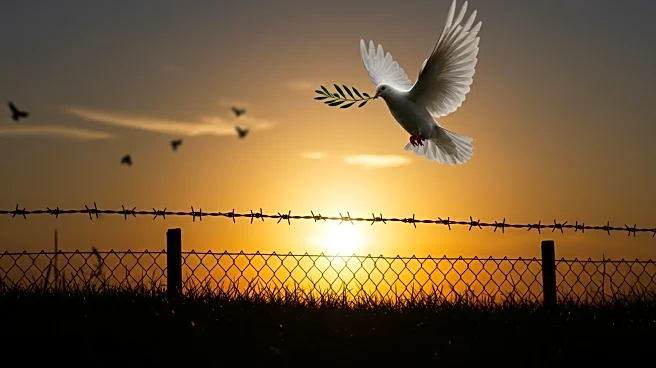What's Happening?
Hundreds of thousands of Israeli citizens have participated in nationwide protests demanding an end to the Gaza war and the release of hostages held by Hamas. The demonstrations, which have led to arrests and the use of water cannons by police, reflect widespread public discontent with the government's handling of the conflict. Protesters have shut down schools, businesses, and public transport, with major unions and universities joining the strike. The protests are driven by fears that continued military pressure could endanger the hostages, with calls for a negotiated deal to secure their release.
Why It's Important?
The protests signify a major public movement against the government's current strategy in Gaza, highlighting the humanitarian concerns and the desire for a peaceful resolution. The involvement of major unions and public figures underscores the broad support for the cause, potentially influencing government policy and international negotiations. The situation reflects the deep divisions within Israeli society regarding the conflict and the government's approach, with implications for domestic politics and international relations.
What's Next?
The Israeli government faces increasing pressure to address the protesters' demands, with potential implications for its military strategy and diplomatic efforts. The continuation of protests and potential government responses will be critical in shaping future developments. International stakeholders may also increase their involvement in seeking a resolution to the conflict.









